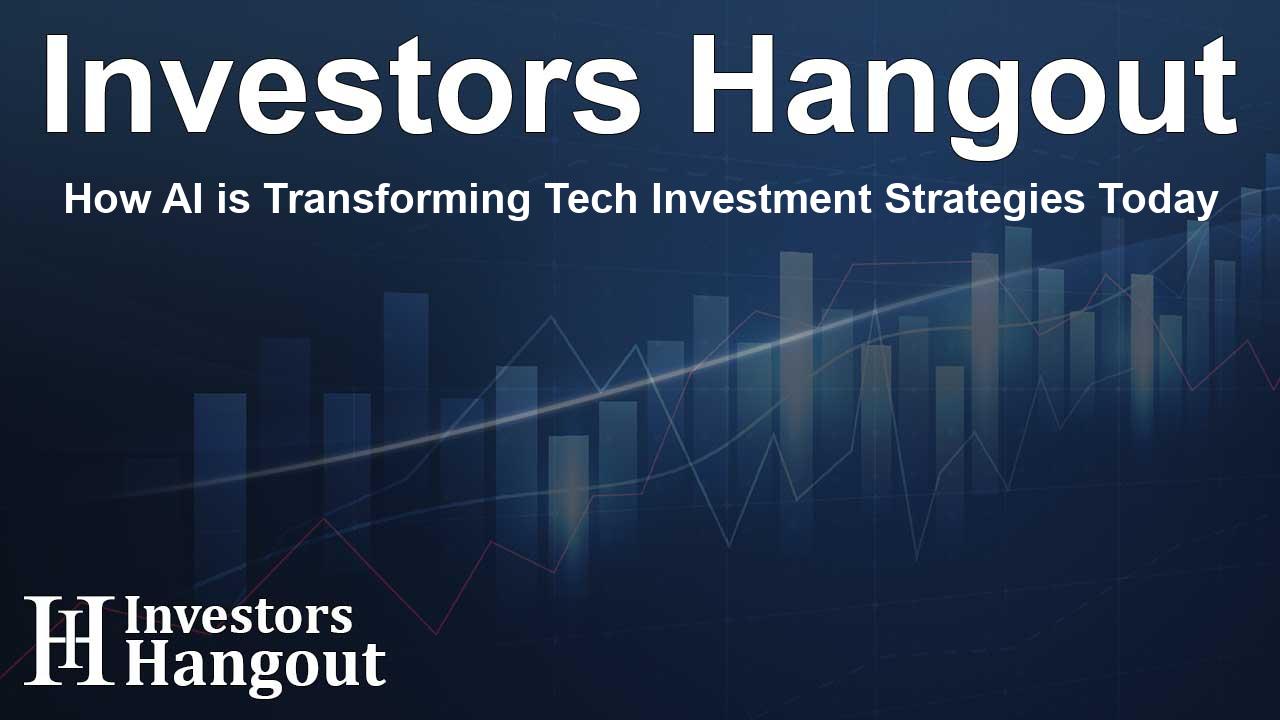How AI is Transforming Tech Investment Strategies Today

The Changing Landscape of Tech Investments
Tech investors find themselves navigating a landscape transformed by a significant shift in focus—macro awareness. While historically, the tech industry thrived on innovation and product enhancements, the emergence of artificial intelligence (AI) demands a more nuanced understanding of economic factors.
Rapid Infrastructure Investment by Tech Giants
The scale of proposed AI infrastructure spending by major technology firms is remarkable. For instance, in a near-future projection, tech behemoths are expected to allocate over $200 billion on capital expenditures, which is almost double the amount spent in previous years. This surge underscores a fundamental change: a transition from software investment to a heavier emphasis on hardware. Such a pivot is crucial since hardware development is significantly more capital-intensive and requires extensive resources and time.
Economic Concerns Affecting AI Spend
Amidst economic uncertainties, executives of tech companies are likely to reassess their ambitious expenditure plans. A slow economy can substantially impact business forecasts, leading to revised projections for the returns on investments in emerging technologies like AI. Investors need to consider these dynamics as they evaluate potential outcomes.
From Software to Complex Machines
In the past two decades, software innovations were primarily characterized by flexibility and low costs, allowing startups to disrupt multiple sectors. Companies such as Amazon and Netflix thrive through rapid iterations and strategic pivots. Now, however, the narrative has shifted. The spotlight is now on sophisticated machinery that drives generative AI technologies, which often requires significant energy and extended timelines for development.
The Challenge of Funding AI Start-Ups
Unlike traditional software startups, many AI startups face high capital demands, making their financial health more sensitive to market fluctuations. In recent years, venture capital funding has surged, with AI and machine learning accounting for a large portion of these investments. This trend continues to generate excitement, as demonstrated by OpenAI's recent fundraising, which involved substantial equity and debt financing.
Market Cycle Challenges
Investors should be aware that hardware-focused sectors, such as semiconductors, are more cyclical. This industry's reliance on large-scale manufacturing means that companies often can't adapt quickly to changing demand patterns. As a case in point, Nvidia recently accelerated its product launch cycle to keep pace with market trends.
Interconnectedness of Semiconductor Sales and Economic Indicators
Historically, semiconductor sales have closely followed manufacturing PMIs. However, this correlation has shown signs of weakening, especially with the recent surge in AI adoption. If this trend continues, investors should brace themselves for a possible correction in global semiconductor sales—a crucial point in understanding the intricate relationships between technology investments and broader economic conditions.
The Need for Macro Awareness in Tech Investing
As technological advancements propel the industry forward, it's vital for tech investors to broaden their perspective. An understanding of macroeconomic influences is essential for navigating the complexities of investing in AI and associated technologies. The convergence of these trends signals that being macro-aware is no longer an option, but a necessity for successfully investing in the tech landscape.
Frequently Asked Questions
What is the focus of current tech investments regarding AI?
Current tech investments are increasingly concentrated on AI infrastructure and hardware rather than software, reflecting the capital-intensive nature of this technology.
How has venture capital funding changed for AI startups?
Venture capital funding for AI startups has surged, representing a significant portion of overall investments in recent years, as seen with large fundraising rounds from major players.
What are the economic factors influencing tech investment strategies?
Economic conditions, including growth projections, inflation, and market confidence, are crucial as they can directly impact corporations' spending plans on AI technologies.
Why are hardware investments considered more risky than software?
Hardware investments are riskier because they require substantial capital and have less flexibility in adapting to rapid market changes compared to software solutions.
How can historical trends inform future tech investments?
Understanding past correlations, such as those between semiconductor sales and manufacturing PMIs, can help investors anticipate potential market corrections and shifts in demand.
About Investors Hangout
Investors Hangout is a leading online stock forum for financial discussion and learning, offering a wide range of free tools and resources. It draws in traders of all levels, who exchange market knowledge, investigate trading tactics, and keep an eye on industry developments in real time. Featuring financial articles, stock message boards, quotes, charts, company profiles, and live news updates. Through cooperative learning and a wealth of informational resources, it helps users from novices creating their first portfolios to experts honing their techniques. Join Investors Hangout today: https://investorshangout.com/
Disclaimer: The content of this article is solely for general informational purposes only; it does not represent legal, financial, or investment advice. Investors Hangout does not offer financial advice; the author is not a licensed financial advisor. Consult a qualified advisor before making any financial or investment decisions based on this article. The author's interpretation of publicly available data shapes the opinions presented here; as a result, they should not be taken as advice to purchase, sell, or hold any securities mentioned or any other investments. The author does not guarantee the accuracy, completeness, or timeliness of any material, providing it "as is." Information and market conditions may change; past performance is not indicative of future outcomes. If any of the material offered here is inaccurate, please contact us for corrections.